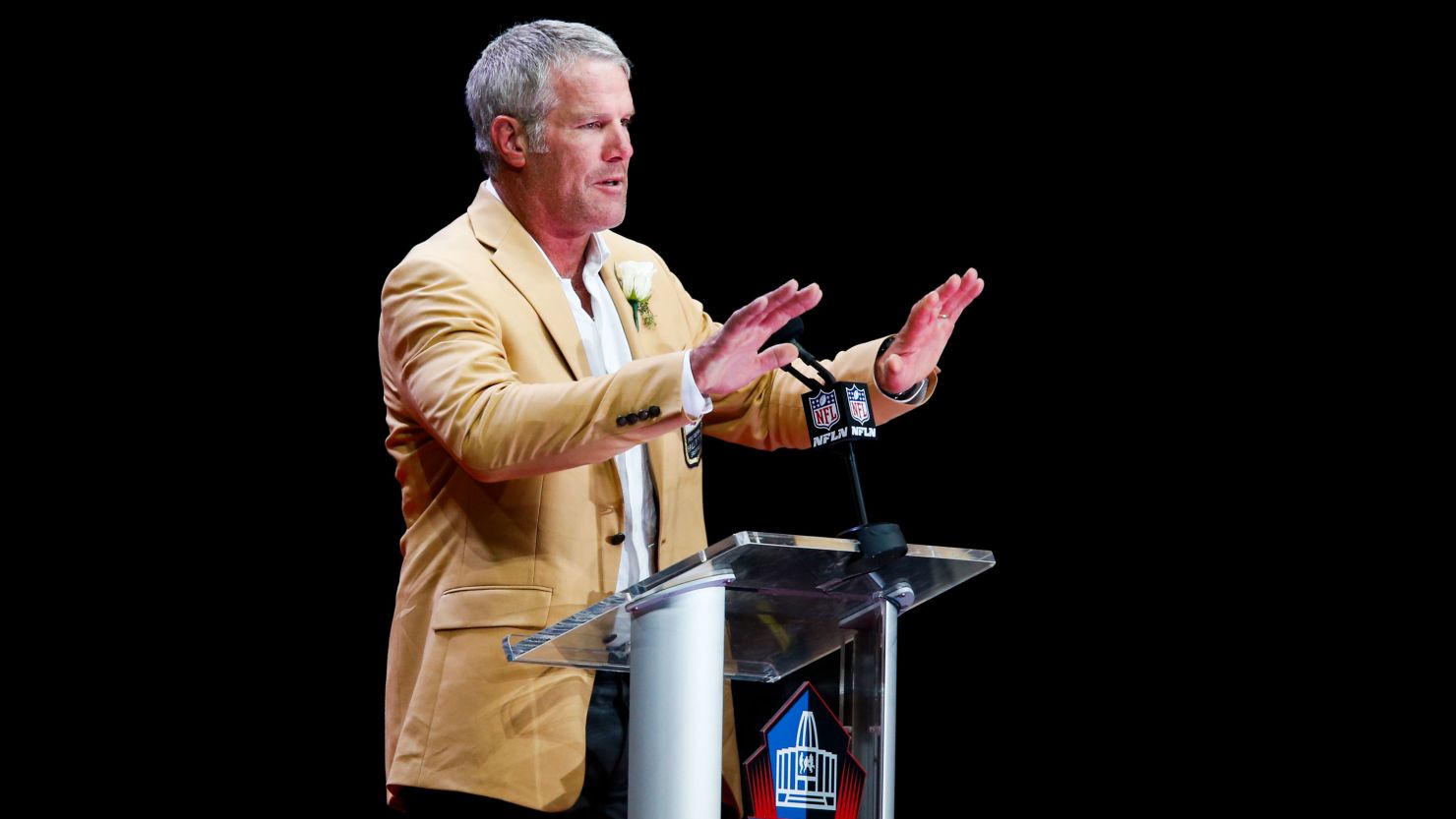Attorneys for Brett Favre on Friday filed a lengthy denial of allegations he used misappropriated state funds in Mississippi meant for needy families for the construction of a state-of-the-art volleyball facility at the University of Southern Mississippi where his daughter played.
Eric Herschmann, an attorney for the Hall of Fame quarterback, filed the denial of allegations in response to a civil complaint brought by the Mississippi Department of Human Services and asked that the court “deny the relief requested by MDHS” and dismiss the complaint in its entirety, as well as award Favre attorneys’ fees and costs.
Favre also requests a jury trial and contends that the First Judicial District of Hinds County, Mississippi, would be the proper venue for a trial.
The answer to the complaint lays out 21 affirmative defenses, where Favre’s attorneys question the statutory basis against the allegations, otherwise claiming that Favre acted in good faith and that “If there was a civil conspiracy in MDHS complaint, MDHS was a co-conspirator.”
Favre’s lawyers cited the federal Personal Responsibility and Work Opportunity Reconciliation Act of 1996 and other Mississippi and federal laws for the legal use of temporary assistance for needy family funds and his denial of allegations brought by MDHS.
His response states that Favre “lacks knowledge or information sufficient to form a belief as to the truth of the allegations” that he conspired to defraud MDHS.
Favre also denied that payments were “made with TANF funds,” claiming that because MDHS receives funding from other federal and state sources, “it is impossible to determine from the commingled funds” which money was used.
Favre did admit, in regard to the USM volleyball facility, that he donated autographed materials to be auctioned off, solicited third parties to help with the construction, and held meetings with former MDHS chief John Davis, ex-USM Athletic Director Jon Gilbert, and Mississippi Community Education Center founder Nancy New about the construction. He also claims that “John Davis suggested that MDHS could provide $4 million in funding” to build the facility.
Davis and New have pleaded guilty to charges related to the scandal.
Favre also admitted to being paid $1.1 million by MCEC in exchange for recording a radio advertisement and other services which he claims was repaid to the state.
CNN has reported that Favre returned $500,000 in May 2020 and repaid the remaining $600,000 in October 2021 for the public service ad campaign after the state auditor issued a demand letter for it, according to the auditor’s office. But the auditor’s office maintained in 2021 that Favre still owed $228,000 in interest.
As to his involvement with concussion drug company Prevacus, Favre admits to investing over $250,000 into the company and soliciting others to invest as well. The state has alleged in a civil lawsuit that Favre in 2018 encouraged the company’s CEO, Jacob VanLandingham, to “solicit (non-profit founder) Nancy New to use MDHS grant proceeds to invest in the stock of Prevacus.”
New was convicted in the scheme and has agreed to cooperate with authorities in ongoing investigations.
Favre is one of nearly three dozen people and entities named in the civil suit brought by the state to recover millions in misspent welfare funds. Favre has not been charged criminally in the welfare fraud scheme.
Correction: A previous version of this story misspelled Eric Herschmann’s last name.
